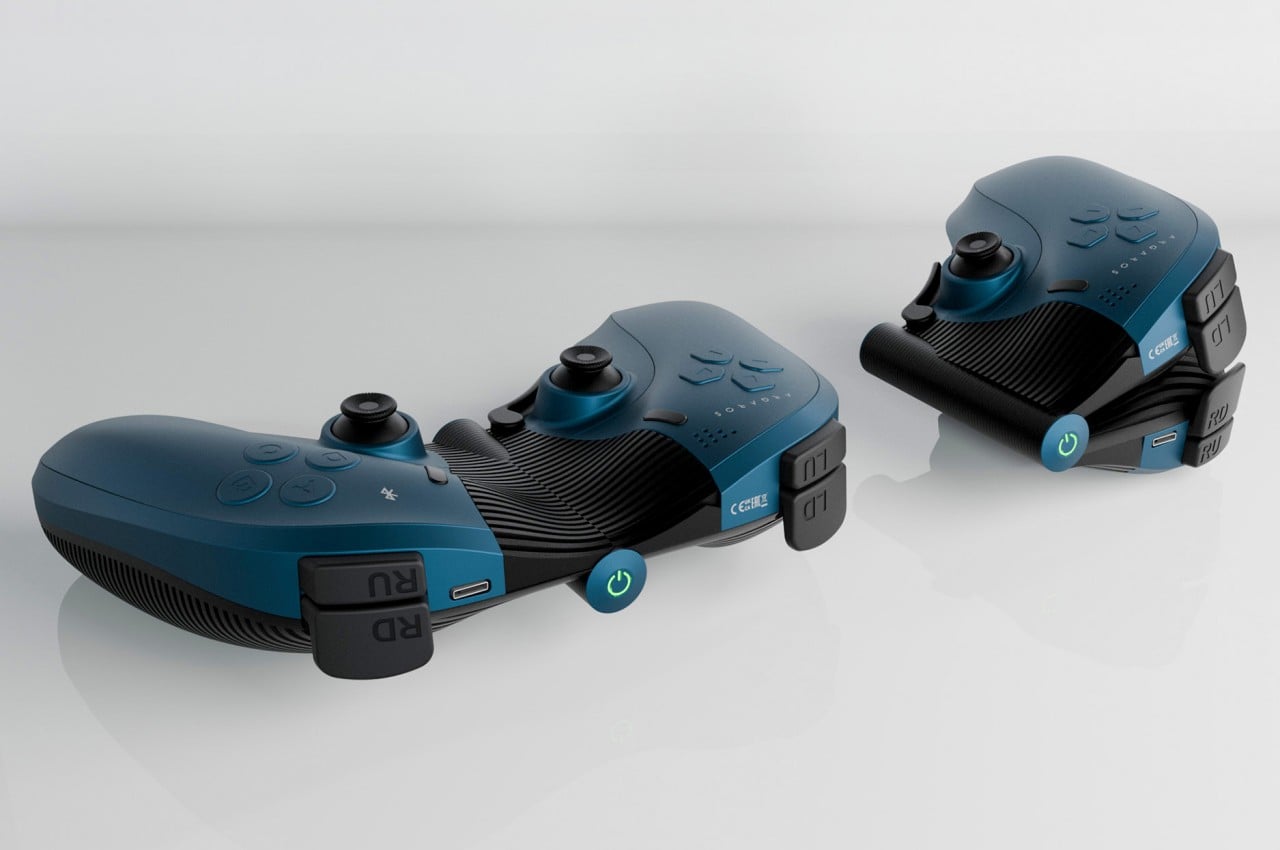
Gaming on the go is quite popular these days, whether it’s on a mobile phone, a handheld device, or even a laptop temporarily parked at a cafe. While video games have traditionally been divided into PC and console camps, this latest trend has made many gamers reach for controllers or devices with built-in controllers, regardless of their platform of choice. Wireless game controllers have become quite numerous because of this, ranging from typical designs to telescopic mechanisms that stretch to grip smartphones or even tablets. Of course, these two aren’t the only designs possible for portable gamepads, and this concept tries to approach the problem from a different angle, one that takes a page out of one of the trendiest smartphone designs of late: foldable phones.
Designer: Przemysław Wolnicki
The basic problem with game controllers is their innate bulk. You can’t really shrink them without sacrificing comfort and ergonomics. This makes them less appealing to quickly stow in bags, much less pockets, as you dash out the door in the hopes of being able to play later on. Even those who prefer to game at home might find the permanent presence of a large chunk of plastic to be visually distracting and might look for ways to minimize their footprint when not in use.
Swift is a game controller design concept that adopts a folding mechanism to make the device more compact in transit. Despite the fact that foldables aren’t new, it’s curious that this design hasn’t been adapted for game controllers at all. There are, of course, advantages and disadvantages to such a design, but those can hardly be verified unless tested in the real world.
This controller concept adopts the more symmetrical button arrangement of a PlayStation controller, which would make the folded form also more balanced when folded. One curious detail about the design is the ribbed surface covering the middle and back of the controller. It’s not clear whether the choice of material is simply aesthetic, but it will definitely have an effect on the texture of the controller, which in turn affects comfort and ergonomics.
While a foldable controller design is definitely interesting and curious, it also raises a few questions as well. While the design does halve the width of the device, it doubles its thickness in turn. There might also be some concerns about the wear and tear this mechanism will incur over time, especially given the wires that have to run through the middle to connect the two halves. Perhaps that is the reason why a foldable design hasn’t been adopted for controllers, but this concept at least tries to encourage pushing the boundaries instead of just adopting the status quo.